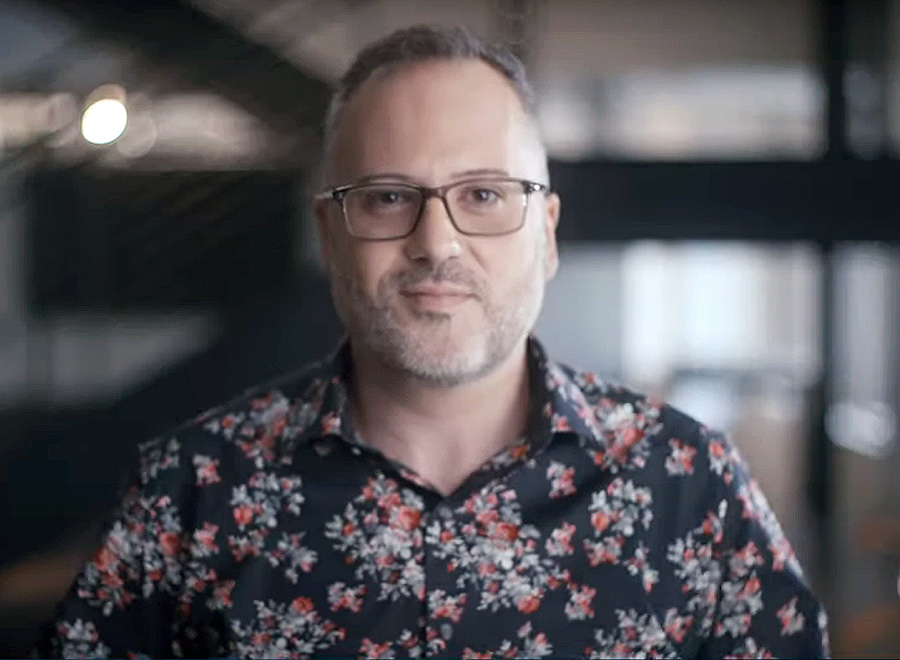
Call us Today for Your Free Consultation
With more than 75 years of experience to our name, we at Goodman Acker P.C. have been lending a helping hand to injured individuals throughout Detroit, including those who need Social Security Disability benefits (SSDI). Being unable to work due to a permanent or temporary disability is a very stressful experience, especially when the injured individual is the primary breadwinner.
At Goodman Acker P.C., we can help you obtain the benefits you need to provide for yourself and your loved ones as you cope or recover from your debilitating condition. We handle cases on a contingency fee basis, which means that you do not pay any legal fees unless we successfully help you obtain your benefits.
Contact our team online or by phone at 248-286-8100 to schedule a free consultation today with our dedicated and seasoned personal injury attorneys.
We have handled SSDI claims involving the following kinds of disabilities:
- Spine
- Brain injuries
- Chronic diseases such as cancer, Parkinson’s disease, or blindness
- Serious mental health conditions
The Difference Between SSDI & SSI Benefits
SSDI benefits are available to anyone who qualifies, regardless of financial need. Supplemental Security Income (SSI) is need-based. That means you must have limited income and assets to qualify. Most people who qualify for SSI also qualify for food stamps. Both programs are run by the Social Security Administration.
Here’s what else you need to know about SSDI benefits:
- SSDI provides monthly cash benefits. Persons who get benefits receive an average of $1,130 per month, with the upper limit being $2,533.
- To get SSDI benefits, you must prove that your medical condition is life-threatening, long-term (at least 12 months), or permanent. If you can’t show that, you may still be eligible for workers’ compensation or other shorter-term government relief.
- In order to qualify, you must also have worked for a certain number of years and have paid into FICA. After receiving SSDI for two years, you may be eligible for Medicare.
- Your spouse and children may also be eligible for partial benefits.
In some cases, you can return to work on a temporary basis without losing monthly benefits. You may work for nine months to test your ability in the workplace, with no risk of losing benefits. The SSA refers to that as a trial work period. Even after the nine-month period, SSDI may still provide a safety net that allows you to work another three years. During that time, you can get benefits as long as you do not earn more than $1,740 monthly (if you are blind) or $1,040 per month (if not blind).
Social Security Disability FAQ
Here are a few of the most commonly-asked questions regarding Social Security Disability Insurance and some simple answers from our Detroit social security disability attorneys.
This might be the most commonly asked question but it’s also one of the hardest to answer simply because each case is so different and unique. Generally, the more serious your condition, the more likely your claim will be approved quickly. Sometimes a case can be won in as little as 30 days, but other times a case can take up to two years to be decided.
The Social Security Administration (SSA) uses a number of criteria to determine whether or not someone actually qualifies to receive social security benefits. They will often take a look at whether or not you can be “gainfully” employed, the severity of your condition, your age, and a number of other factors when determining whether or not you qualify for benefits, and if you do, how much you will receive. The best way to know for sure if you qualify is to talk to a legal professional who is familiar with the SSA and its policies and procedures.
Yes. For starters, some people will qualify for expedited decisions when they have extremely serious conditions through a program known as “compassionate allowances.” Furthermore, certain other conditions qualify for automatic social security benefits with just the proof that they happened or exist, such as having a liver, kidney, heart, or lung transplant, or even having a cochlear implant installed.
Yes, but your employment cannot be considered “substantial gainful activity” or SGA. For the year 2018, SGA is set at $1,970 per month for blind applicants and $1,180 for applicants with other disabilities. If you’re making more than this amount, the person examining your case will likely determine that you’re not really disabled and likely deny your case. Furthermore, if you’re receiving benefits and begin working beyond this SGA limit, the SSA will likely cut you off.
Has your initial application been denied? Don’t worry: over 60 percent of the over one million applications that the SSA receives per year are denied the first time. It’s not unusual by any means. If you are suffering from a severe condition, you should consider appealing your case. In fact, if your condition prevents you from working at a “substantially gainful activity” level, you should consider appealing your case and pursuing the benefits you deserve. It’s strongly advised you speak with an attorney about your exact situation before making your decision whether or not to appeal.
There are four different appeal levels, with the shortest one taking an average of about six months to complete and the longest taking nearly two years for a normal case. They’re not quick processes, and you shouldn’t be surprised if things take a while to resolve themselves. Working with a skilled attorney can help keep your case on track, but don’t expect a result within a month or two after waiting so long only to have your case rejected.
While you can apply for Social Security Disability Insurance benefits on your own, it’s not recommended. Most people make simple or avoidable mistakes that they didn’t otherwise know about because they’re simply not familiar with the process. Having an attorney on your side can be invaluable when it comes to analyzing your case, submitting your initial application, and then preparing for any necessary appeals you may wish to pursue.
The Social Security Administration (SSA) denies over 60% of all initial applications. The SSA receives as many as two million applications per year. There’s a good chance your application will be denied, even if you have a strong claim. Most applicants go through a series of appeals before winning benefits. There is some good news if your claim is initially denied. Once your claim is approved, you’ll receive back pay from the date you first filed. Retaining the services of a knowledgeable law firm such as ours can increase the chances that your appeal will be successful.
Supplemental Security Income (SSI), benefits are never taxable. However, sometimes, Social Security disability insurance (SSDI) payments are taxable. Whether or not you have to pay taxes on your SSDI benefits depends on how much your total income is, and how much income you receive apart from the SSDI payments. Generally, if the SSDI benefits are your only source of income, you will not have to pay federal income taxes.
Here’s the breakdown of the SSDI taxable benefits:
- If You Are Single: For individuals receiving SSDI payments, you may have to pay taxes if your total income exceeds $25,000 per year. Generally, if your income is between $25,000 and $34,000, you will only have to pay federal income taxes on about 50% of your SSDI payments. If your income exceeds $34,000, you will have to pay taxes on 85% of your SSDI benefits.
- If You Are Married: Federal income taxes take into consideration your spouse’s income when determining how much you will have to pay on your SSDI benefits each year. For couples, the SSDI benefits are taxed if their total amount of income is more than $32,000. This includes all forms of income. SSDI taxes for married couples are as follows:
- If you and your spouse’s income is between $32,000 and $44,000, you will have to pay taxes on 50% of your SSDI benefits.
- If you and your spouse’s income is above $44,000, you will have to pay taxes on 85% of your SSDI benefits.
Since you must be under a specific income threshold to be eligible for SSDI benefits, the Social Security Administration has its own ways of determining who meets these requirements. Substantial gainful activity is a term used by the Social Security Administration that refers to an individual’s ability, or inability, to earn an adequate income. To learn more about the specifics of these requirements and their exceptions read our blog, What Does “Substantial Gainful Activity” Mean in a Social Security Disability Case?
Sometimes, you may receive lump-sum payments when your SSDI benefits are first approved. These payments may include back pay and retroactive benefits. If you receive lump-sum payments, you will have to pay taxes on them in the year you receive them. You will not have to pay taxes for the years for which the benefits are granted.
The amount of the lump sum that you must pay taxes on depends on various factors. Regulations try to make sure you pay taxes at the same rate you would have paid if you had been receiving the benefits on a regular basis. For any lump sum or SSDI benefits payment, it is important to analyze your financial situation and consider the amount of taxes you will need to pay.
Please contact our firm for step-by-step guidance with your SSDI matter.
See What Our Clients Have to Say About Us!
Mr. Maitland handled my Social Security Disability case last year. Over the many months, while my case was being prepared, Larry and Joanne were both very professional, courteous, thorough and just plain nice! I shall definitely recommend your firm to anyone I know who needs a great attorney!




